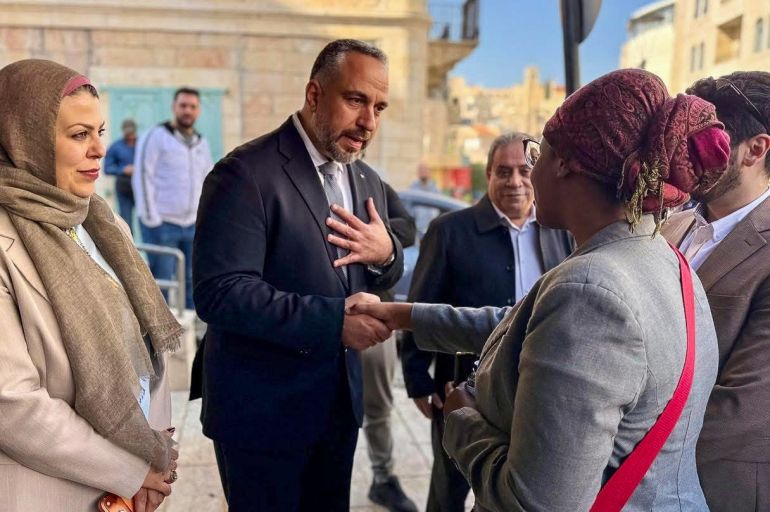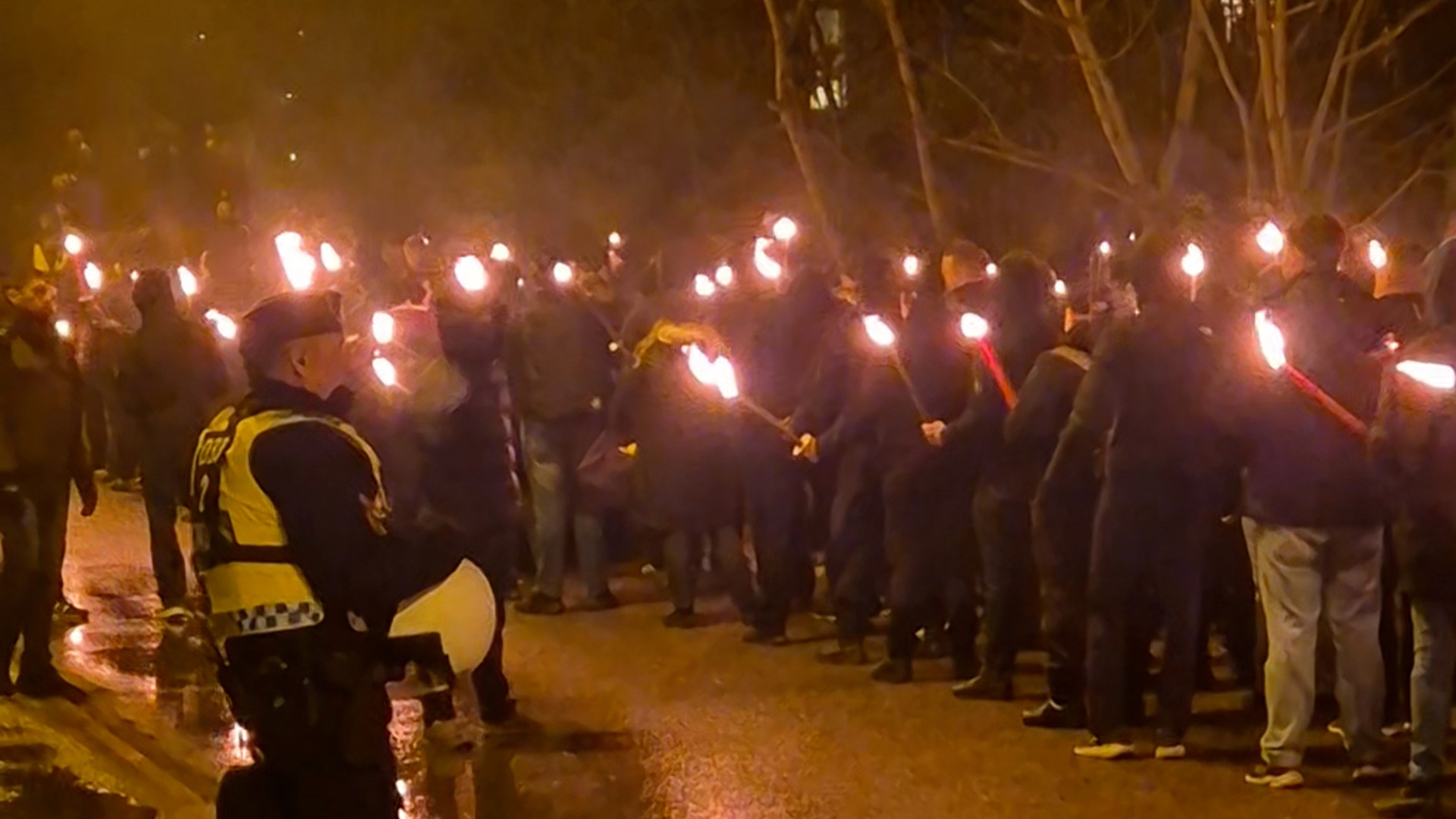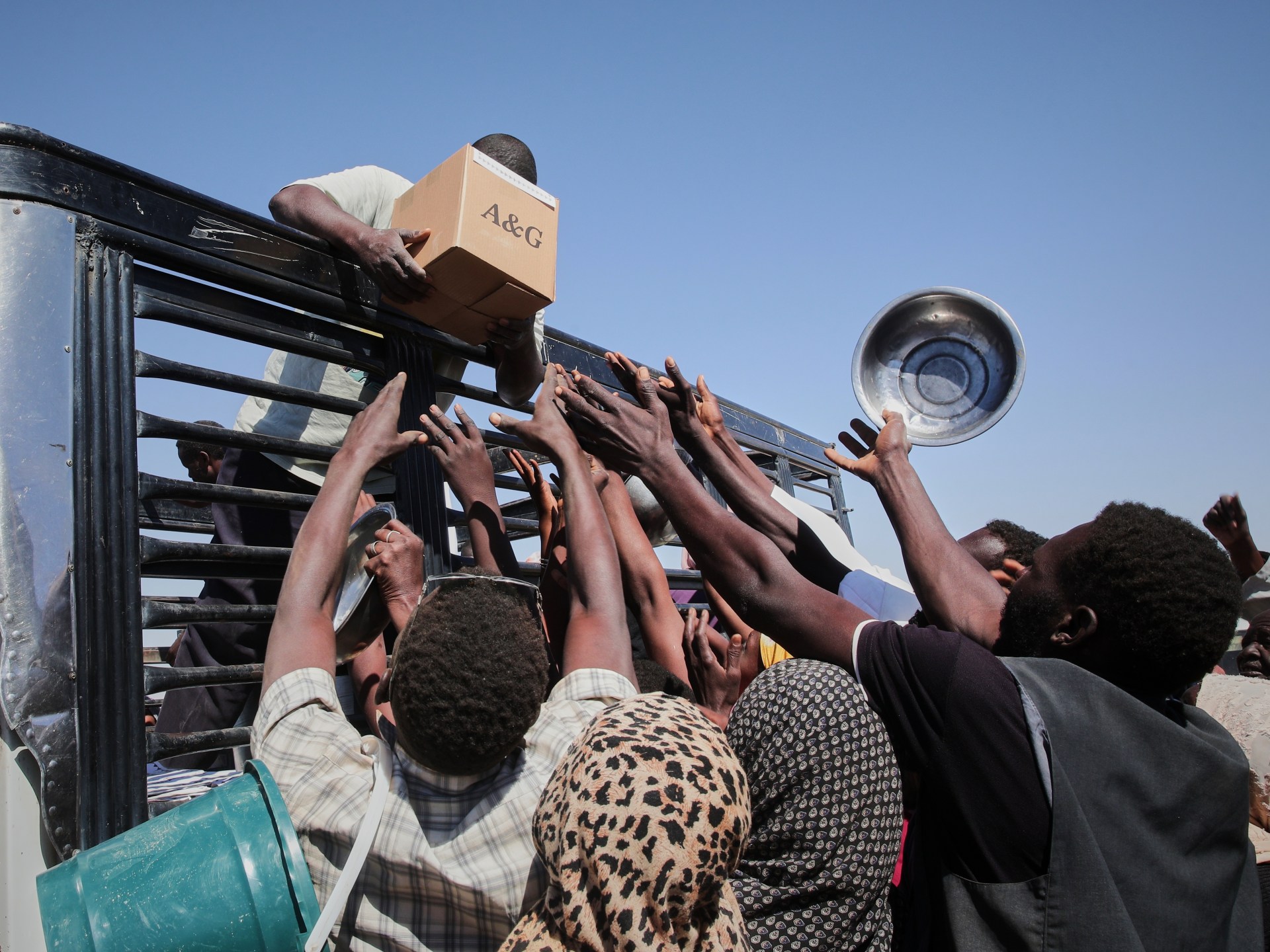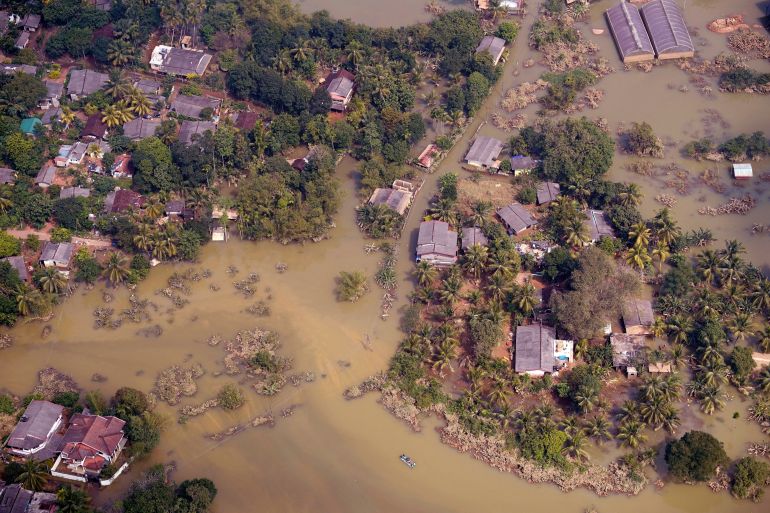Bethlehem, occupied West Bank – For the first time in two years, the Christmas tree in Bethlehem lit up the night sky, restoring a glimmer of joy to the birthplace of Jesus after seasons overshadowed by Israel’s genocidal war on Gaza.
Palestinians watching the lighting said the celebration carried a dual meaning: Hope in the Nativity and a yearning for freedom from the Israeli siege gripping Bethlehem and cities across the occupied territory.
At the same time, residents say the celebrations remain dimmed by the grief over mass casualties and destruction in Gaza and Bethlehem’s economic paralysis under tightening Israeli harassment.
This year’s celebrations were limited to religious rituals, attended by church leaders and local officials who stood on a stage in Manger Square for a modest tree-lighting ceremony.
Thousands gathered in the square, singing hymns and listening to choirs carolling – the only form of festivity permitted at a time many described as a mix of joy and mourning.
‘A different Christmas’
“The celebrations this year are unlike any before,” Reverend Munther Isaac, pastor of the Evangelical Lutheran Christmas Church, told Al Jazeera.
“Bethlehem is beautifully decorated, and the tree is lit, but there is deep sorrow inside every Palestinian.
“Through these celebrations, Palestinians send a message of resilience – to say we are still here, determined to live, to keep Bethlehem the capital of Christmas, and to continue telling its story. Palestinians love life.”
Bethlehem’s Mayor Maher N Canawati echoed the message, saying the municipality chose to restore the city’s Christmas lights after “a long period of darkness and silence”.
“We wanted to revive hope for the people of Bethlehem and all Palestinians, and to send that hope to Gaza and to the world,” he told Al Jazeera.
Canawati stressed that Bethlehem “is open and safe”, saying it is time for the world to support Palestinians’ steadfastness.
“As Bethlehem lights its Christmas tree, it … tells us that hope is a strength. But, he added, “The suffering and destruction in Gaza remain in our hearts. People remember the glimmer of light even amid devastation.”
The mayor also shared a message sent to Bethlehem by Pope Leo XIV, saying the pontiff assured residents he “carries Bethlehem in his heart and prayers and is working for an end to Palestinian suffering”, urging people in Gaza “not to give in to despair”.
Canawati called on pilgrims worldwide to visit Bethlehem, saying tourism is an act of solidarity with Palestinians “who are weary of war but have not grown weary of hope”.
Economic hardship under siege
Bethlehem’s Christmas spirit comes despite severe economic decline linked to Israeli closures and the collapse of tourism, the primary driver of the local economy.
Shopkeepers and artisans told Al Jazeera that hope, rather than income, has kept the city standing. Adrian Habibeh, a young artisan working in his family’s olivewood shop where hand-carvings are sold to religious devotees and tourists, said tourism has been “nearly frozen for more than two years”.
“This year’s Christmas celebrations are not like before,” he said. “But we hope this will be a year of joy – and that tourism will return. It’s vital for our economy.”
Residents from across the West Bank and Palestinian communities inside Israel travelled to Bethlehem despite checkpoints and road restrictions.
Yara Khalil, who came with her family from Ramallah, said she felt both joy and unease. “Gaza is suffering terribly from the war, and that pain is inside us,” she said.
“But Bethlehem, which had no celebrations for two years, looks beautiful despite everything.”
![Bethlehem Christmas tree [Monjed Jadou/Al Jazeera]](https://i0.wp.com/www.aljazeera.com/wp-content/uploads/2025/12/IMG_8438-1765086347.jpg?w=696&ssl=1)
She added that she expected the trip to be difficult, “but people’s excitement and determination to celebrate pushed us to come”.
The Bethlehem Chamber of Commerce organised bus trips for Palestinians from cities inside Israel to encourage local tourism.
Samir Hazboun, head of the Bethlehem Chamber of Commerce, told Al Jazeera that the first groups began arriving on Saturday.
“The second wave of local pilgrims and visitors from Palestinians who live in Israel is expected after December 20,” he said. “We anticipate about 3,000 visitors a day until year-end, which will increase hotel occupancy – currently at just 20 percent among foreign tourists.”






